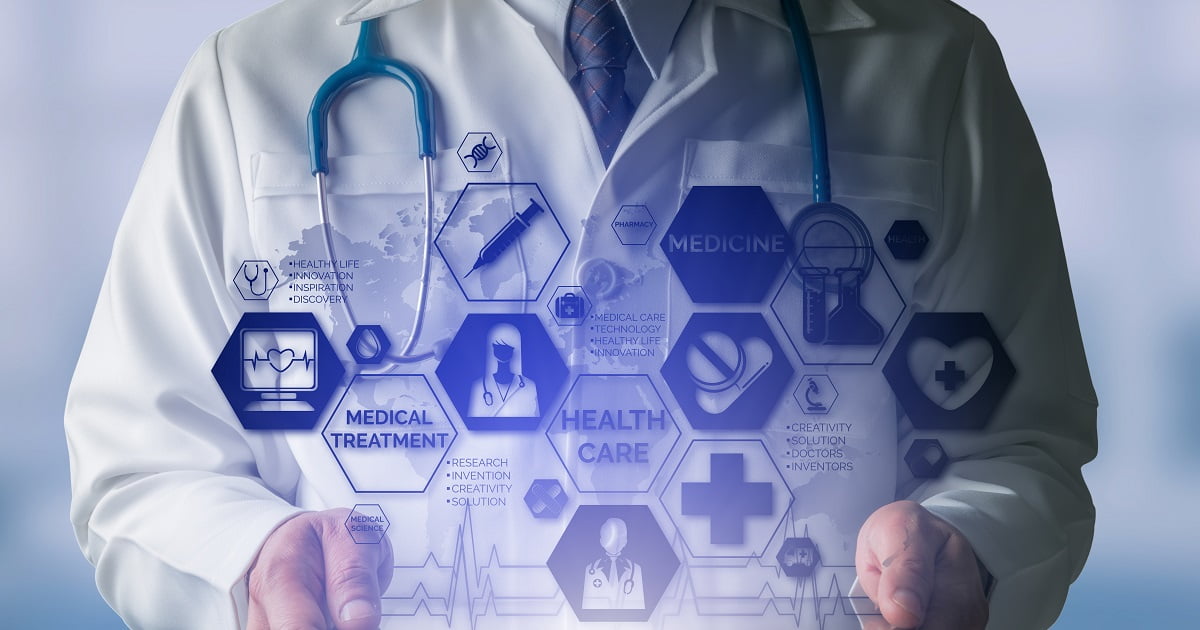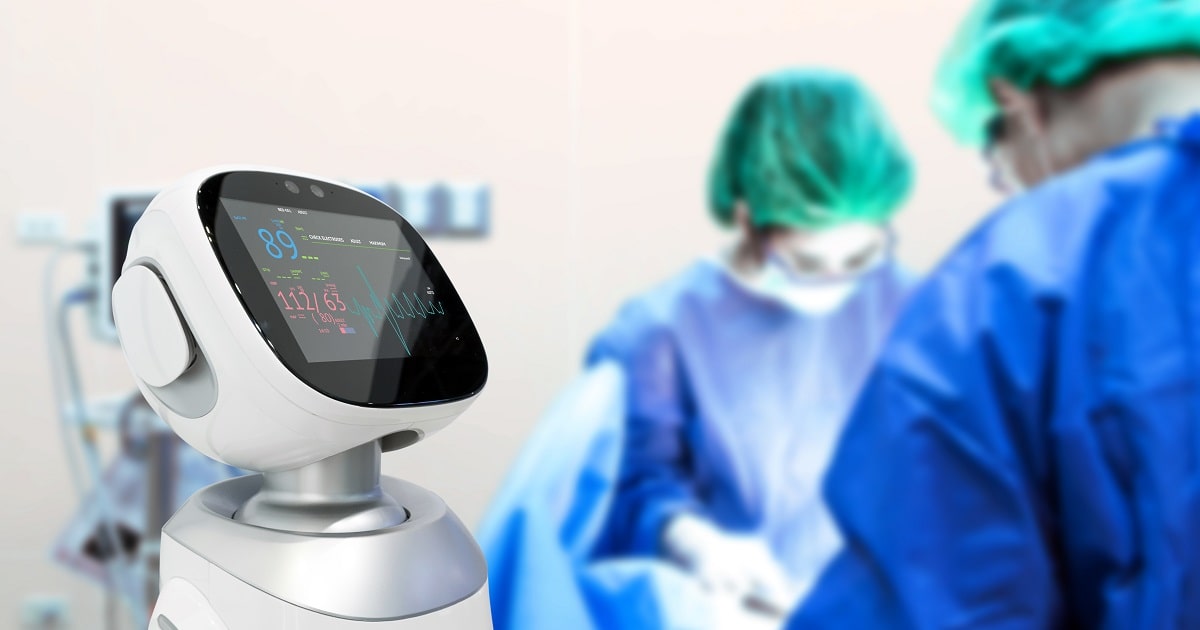
Digital Healthcare
Article | November 29, 2023
Global efforts to tackle gender inequality have grown in recent years. But there is still so much to be done. Figures from the United Nations show that outcomes for women and girls continue to lag across a range of issues, including poverty, education, work and health. And according to the World Economic Forum, at the current rate, it will take 108 years to close the gender gap.
Although healthcare is founded in objectivity and science, gender bias is still remarkably common. We wanted to understand more about female perceptions of healthcare, so we undertook consumer research that delved into the experiences of women compared to men. The results pointed to a clear disparity, finding that women are less likely to visit the doctor when they have symptoms of ill health and, in some cases, are taken less seriously when they do seek medical advice.
Women being left behind
According to our research, a significant proportion of British women feel disappointed in the healthcare they receive, with one in five reporting they weren’t taken seriously when presenting symptoms to a healthcare provider. What’s more, a staggering one in four said they are reluctant to seek medical advice at all for fear of wasting a GP’s time. These statistics suggest that, not only are female experiences of healthcare damaging their relationship with clinicians, but they could be eroding confidence in recognising and acting on warning signs and symptoms too.
This sentiment is particularly evident when focusing on cardiac care. One in eight women (13%) feel ignored when presenting symptoms of heart disease to healthcare professionals, compared to just 4% of men. And of UK adults who have received a coronary heart disease (CHD) diagnosis, women experiencing symptoms were 55% more likely than men to visit the doctor multiple times before receiving a referral for further investigation. On top of this, women are five times more likely to receive a false finding from the cardiac stress tests that are traditionally used to assess heart health.
“There does appear to be a gender bias in onward referral to secondary care and for diagnostics in the local area, which is influenced by the attending healthcare professionals’ risk assessment. Traditional teaching has led to gender bias, as we are programmed to attribute a lower level of pre-test probability and risk to females. This may have contributed to a general lack of awareness around cardiovascular health in women. For example, in a survey I carried out among more than 600 female employees working within North West Anglia NHS Foundation Trust, 82% said they didn’t feel informed about their cardiovascular health. Considering participants included some of the most medically informed women in the UK, the results speak volumes about how we view cardiac health among women.”
- Dr Rebecca Schofield, consultant cardiologist at North West Anglia NHS Foundation Trust
These widespread misconceptions around heart disease and heart attacks are often exacerbated by what we see in the media – think of the countless TV stereotypes of male characters clutching their chests and falling to the floor.
But given that CHD is responsible for one in 13 female deaths, it appears that public health efforts have failed to make people aware of the risks for women. It is, perhaps, not surprising then that 42% of women with CHD did not immediately recognise their symptoms as signs of heart disease. In short, women are missing out on time-critical diagnoses and treatment due to a lack of awareness and education among both healthcare providers and the public.
Technologies making a difference
Thankfully, progress is being made to improve healthcare outcomes for women. Innovative technologies are increasingly providing diagnostic solutions that can reduce incidences of human bias and give clinicians greater clarity on the presence or severity of different conditions in their female patients.
For example, AI is already being used to detect diseases such as cancer more accurately. Its adoption is facilitating reviews and translations of mammograms 30 times faster, with 99% accuracy, reducing the need for unnecessary biopsies.
There’s extraordinary potential for AI and healthcare, and it’s something the NHS continues to recognise, most recently with the launch of its Artificial Intelligence Laboratory (AI Lab) and NHS England’s (NHSE) MedTech Funding Mandate. The latter aims to accelerate the uptake of selected innovative medical devices, diagnostics, and digital products to patients.
As part of the NHS efforts, NHSE has mandated the HeartFlow Analysis for use in hospitals across England for patients, male or female, who might otherwise be sent for a cardiac stress test. The HeartFlow Analysis is a gender-neutral technology that takes data from a coronary CT scan of the heart and leverages deep learning (a form of AI) and highly trained analysts to create a personalised, digital 3D model of each patient’s coronary arteries. This then helps clinicians to quickly diagnose CHD and decide the appropriate treatment for patients of any gender. Time spent in hospital is minimised for patients and often layered testing and unnecessary invasive diagnostic procedures can be avoided.
Final thoughts
While AI is helping us tackle gender bias in certain areas such as oncologic and cardiac testing, healthcare professionals are not absolved of responsibility when it comes to confronting this problem. It remains incumbent upon clinicians to recognise unconscious bias that would deter them from referring women or minority patients for much-needed testing.
Outside of the hospital, public health education efforts must expand so that far more of us can recognise shortness of breath, nausea, vomiting, back or jaw pain, and other symptoms beyond chest pain to be indicators of a heart attack in a woman. Knowing what to look for and overcoming personal bias that might lead to these signs being disregarded, may allow us to help one of the more than 100 women who will experience a heart attack in the UK today.
Read More

Health Technology, AI
Article | July 18, 2023
Contents
1. Alexa, Are You There?
2. Digital Assistants-Cum-Doctor-Assistants
3. Toward An AI-Friendly Life!
1. Alexa, Are You There?
If Siri, Alexa, Google Now, or Cortana are your friends, you do not need any special introduction for today’s topic! This is because these digital assistants have become part and parcel of our lives; from completing our minimal tasks to helping us solve our problems, they make our day-to-day life simpler and more manageable. Popularly called AI, Artificial Intelligence is the simulation of human intelligence processes by machines. Similarly, Machine Learning, also called ML, is the capability of a machine to imitate intelligent human behavior.
2. Digital Assistants-cum-Doctor Assistants
The unpredictable pandemic years, which took thousands of lives, depict the rise of complexities in the healthcare industry. To deal with such cases in the future tactfully, the healthcare segment needs to be proactive and implement advanced technologies to detect, resolve, and prevent untimely death. Modern technologies such as Artificial Intelligence and Machine Learning help the medical fraternity perform tasks usually done by humans quickly and accurately, saving much time that can be utilized elsewhere.
Let’s take a quick tour of how AI and ML can boost the healthcare industry:
Artificial Intelligence can broadly scan patient databases or consult patients via a chatbot or online support system to understand their symptoms, send data to doctors, and get real-time diagnoses and prescribed medicines.
Machine Learning, a subset of AI, can replace traditional processes with a supervised one, as in, a patient can be treated based on similar symptoms and treatment of other patients. The process requires a quick scanning of the database, which can be time-consuming if done by human effort.
Taking technology by storm, patients suffering from neurological disorders can be treated via Brain-Computer Interfaces (BCI) backed by AI. With the help of this technology, normal bodily functions, such as the ability to move, speak or react, can be restored. It can also assist doctors in treating patients with strokes, locked-in syndrome, etc.The healthcare segment is revolutionizing, as sensitive operations such as heart surgery are being performed with robotic precision and control with AI-based algorithms. For this purpose, precision machine learning processes are being used to train robots and improve accuracy.
AI can also help in digital pathology. Instead of placing separate slides or tissue blocks and observing them manually, pathologists can do it via AI, which can help analyze digital slides using image analysis and machine learning.
3. Toward an AI-friendly Life!
If you never forget to wear a smartwatch, track daily steps, get water intake notifications, eat mindfully, and consistently monitor pulse rates, then you are already AI-friendly! You have successfully incorporated AI into your life and taken the first step towarda healthy life!
Read More

Health Technology, Digital Healthcare
Article | August 21, 2023
Throughout my professional carrier, I iused to visit many companies involved in drug discoveries and had seen the challenges they go through. Some are pleasant as the investigational molecules were moving forward in value chain whereas few faced bottlenecks at the end. The association with Pharma industry over the years had taught me about many new ideas and allowed me to see that how innovative ideas are impacting our social and scientific world to a great extent. The changes we see today, are the results of ideas came from various quarters globally and I feel digital innovation had shaped today’s world differently. The impact of digital platform in today’s Pharma world is a “Game-Changer".
Innovation is a continuous process which simplifies challenges into reality and plays a very important role in our society. Centuries ago, scientists used to spend years in laboratories to understand material science. The chemical science evolved around discovering elements, synthesis of compounds or even isolating products from natural resources. Today’s world is highly indebted to those discoveries and efforts and modern science has gradually moved towards digital platform. Last few decades, innovations based on new technology platforms has made huge impact in scientific discoveries and few such ideas and action I feel has brought significant changes. Our lifestyle and social environment have witnessed deep impact due to such innovation. The chemical science is evolved not around only chemists today but have huge influence of mathematicians and technologists for faster development.
Advancement of digital science, new algorithms to solve the problems has modified the way of drug discovery to a great extent. In the recent past, we were heavily depended on big machines, but innovation has brought the whole items in a small packet now. The technology platform is modified, speed has increased in identifying new drugs with artificial intelligence (AI) and machine learning is accelerating the drug discovery and development processes. Today’s Pharma industries for commercial supplies are now depended on automation, optimization of the manufacturing processes, as well as designing effective marketing and post-launch strategies. The process is aimed to have better control on the operation, improving safety and better predictability of quality. For conducting clinical trials, identifying patient’s profile, an eligibility criteria is crucial which has been made by the processes being faster and cost effective by introducing Artificial Intelligence (AI).
Earlier when focus was to identify the origin of life, finding new elements, compounds or building blocks, today’s world is heavily dependent on data or ‘Big Data’. The amount of information available throughout drug discovery and development process, analyzing, interpreting, and predicting right candidate require high-performance systems to analyze data properly and derive value from it. There is advancement of analytical techniques, which provides more accurate information about the clinical trial reports and the data across patient pool, zeroing down towards right candidate is a real challenge and there are several AI enabled tools available where the processing time is reduced significantly which might have taken several years. The exciting part is that innovation is not only limited to laboratory work but works in coordination of mathematical interpretations, data analysis and provide significant clues to develop new molecules and even provide approach towards therapeutic categories. Currently available advanced technologies enhance drug development process, making it less time-consuming and cost-effective process where AI can recognize hit and lead compounds, and provide a quicker validation of the drug target and optimization of the drug structure design. Data scientists play a very significant role in all these activities.
Innovation focusing personalized medicine is now a reality and companies involved in such basic research have made breakthrough to understand how the human body responds to drug. Software solution is also available for simulating effects of drugs in patient body based on individual characteristics, scientific data for real time prediction of efficacy and drug interaction on individual. These predictive models are shortening drug discovery pathways to a great extent. Small molecule drugs or even large molecules development are heavily depended today on such modelling and predictive approach. The aim to reduce cost of drug development, shortening discovery path, focus on clinical trial mechanism is more productive with a higher success rate. During the pandemic period, in a shortest possible manner, several companies started working to develop new drugs or vaccines using drug-specific exposure models for drugs under investigation for the treatment of Covid-19.
Similarly, discovery platform is also working on cutting edge technology ‘Organ-on-a-chip’ that can emulate the physiological environment and functionality of human organs on a chip for disease modeling, mimicking the impact and could be a game changer in future. I will be happy to see when technology platform can accurately predict human mind and with the help of AI, can find a probable solution to avoid any such complex conflicts. It would be interesting to see that AI is analyzing and predicting the chemical change in the bodies impacting human mind and analysisng it quickly to predict psychological behavior of the patient and guide physician for right therapy. This may lead to predicting problems one may face in old ages where the decays may be prevented at early stage. This is a challenge but understanding and predicting psychological behavior may improve patients’ life. Depression and its remedy may be based on understanding changes, patterns of physicochemical behavior and its impact during mood swing and predicting such things in advance by using the advanced AI tools could be a game changer.
Another path breaking development where technology involving both engineers and scientists to help drug design to obtain maximal therapeutic benefits for patients including designing drug delivery systems and biomedical devices is 3D-printing technology. This involves high end computer simulations making analysis faster and predictive than before. Influence of 3D printing in designing variety of dosage forms has simplified its preparation. Though further study is under progress but the technology implementation at late has reduced cost of drug development to a significant extent and will add value in future drug development. It is interesting to see how this 3D printing technology works on human brain mapping and predicting a right path for treatment for betterment of large patient pool. Today with advanced technology, we are now more dependent on machines, limited close interaction with our near and dear ones, but created more friends on social platform. Though life looks easy, but over dependent on machines is creating another complex environment and this growing complexity may change the disease pattern. It will be interesting to see that how these technology platforms improve further to ease out such complexities for a healthy future.
Read More

Future of Healthcare
Article | February 19, 2022
Anesthesia groups face major challenges in the aftermath of the pandemic: Financially strapped hospitals are increasingly unwilling or unable to pay anesthesia subsidies, and a shortage of qualified anesthesiologists and CRNAs is making recruitment extraordinarily competitive.
The good news is that anesthesia opportunities are plentiful in the ambulatory surgery center (ASC) market. As more inpatient procedures migrate to ASCs, anesthesia practices can help meet demand by working with hospitals and ASCs. A dual-contracting approach can help increase revenue, reduce operational risk, enhance recruiting leverage, and present opportunities for equity investments in ASC ventures.
Expanding ASC Case Mix
Multiple factors are driving increased ASC volume.Consumers have long been attracted to the convenience andfast turnaround timesASCs offer, and as the pandemic began to take hold and patients worried about becoming infected in hospitals, theirpopularityincreased.
But even before the pandemic hit, theuse of ASCs was growing,with the number of centers increasing 7.1% annually since 2016.1No doubt this was in part driven by Medicare restricting fewer surgeries to the inpatient only (IPO) setting. This year alone, Medicare is adding 11 orthopedic procedures to the ASC-approved list, including total knee arthroscopy (TKA) and total hip arthroscopy (THA).2Commercial payersare alsofuelingASC volume by promotingthis venue as a lower-cost option to members.Lastly, with more than 90% of ASCs at least partially owned by physicians,providers themselvesare driving moreprocedures to this setting.
Hospitals Become ASC Buyers
For years, hospitals viewed ASCs as direct competition and discouraged or even prohibited inpatient anesthesia practices from contracting with them. But that dynamic is changing as more hospitals become buyers or majority investors.
According to a recent survey, the percentage of hospitals and health systems planning to increase their investments in ASCs rose from 44% in 2019 to 67% in 2020, with 75% of 200-plus-bed hospitals already owning more than one ASC.3Hospitals view these investments as a way to enhance physician relationships and increase surgical capacity.
The Benefits of Practice Diversification
For anesthesia practices that elect to contract with both hospitals and ASCs, a key benefit is improved profitability, since average ASC case reimbursements are higher than average hospital cases due to better payer mix and more efficient room turnover. Groups that work with multiple organizations also reduce their institutional or operational risk by limiting their exposure to potential financial problems associated with a single contracted entity.
Practices likewise gain an edge when it comes to recruiting in today’s highly competitive anesthesiologist and CRNA market. One of the chief benefits of ASC involvement is being in a position to offer a better work-life balance by spreading call responsibilities across a larger physician call pool. The math is simple: If a hospital group has seven physicians, each must provide call coverage once a week. But if the group also contracts with five ASCs and brings on five additional doctors to staff the facilities, individual call responsibilities are reduced to once every 12 days.
The importance of mitigating call duties to improve the work-life balance for both experienced clinicians and new hires can’t be overstated, particularly as hospitals work to streamline OR throughput by increasing the number of surgical procedures. Groups can also explore a range of creative compensation approaches, including essentially selling call opportunities to newly hired or recent graduate anesthesiologists as additional avenues to attract qualified clinicians while easing the burden on senior anesthesiologists.
Equity Opportunities
Among the most intriguing aspects of ASC involvement is the potential for becoming an equity stakeholder in the business. Surgeons traditionally have been the primary drivers in creating ASCs, but new opportunities exist for anesthesiology groups, particularly if their hospital is buying an existing ASC or developing a new ASC venture and looking to diversify the ownership group.
The idea of anesthesia ownership isn’t as crazy as it might sound. Like surgeons, anesthesiologists are integral to the success of an ASC, and like surgeons, they get there early and stay late. It’s no secret that joint ownership can greatly improve relations between the practice and the hospital, since both are now working toward the same objectives.
Groups can also make more money. I met with a surgical group not long ago with a 49% ownership stake in a hospital. That equity generated an additional $80,000 per year for each physician partner. How much you can make, of course, depends on your specialty, your level of ownership, and the volume of business. But you’ll never know until you try.
Outside Expertise
The pandemic has unleashed numerous changes throughout healthcare, and where the dust will eventually settle isn’t entirely clear. But what is certain is that for organizations to remain viable, they’ll need to be flexible and look hard at nontraditional business opportunities. Contracting with both hospitals and ASCs represents one such approach for anesthesia groups.
If you’re interested in exploring this and other business possibilities but don’t know where to start, Change Healthcare can help. Our team of expert anesthesia practice-management consultants have an average of 18 years’ experience in the specialty. We can be engaged on a per-project basis or we can provide our consultant services as part of our turnkey anesthesia-billing solution.
Our anesthesia revenue cycle management services can be deployed either on our own proprietary anesthesia-billing platform or on your hospital billing system. Either way, we’ll provide seamless, end-to-end service.
Read More